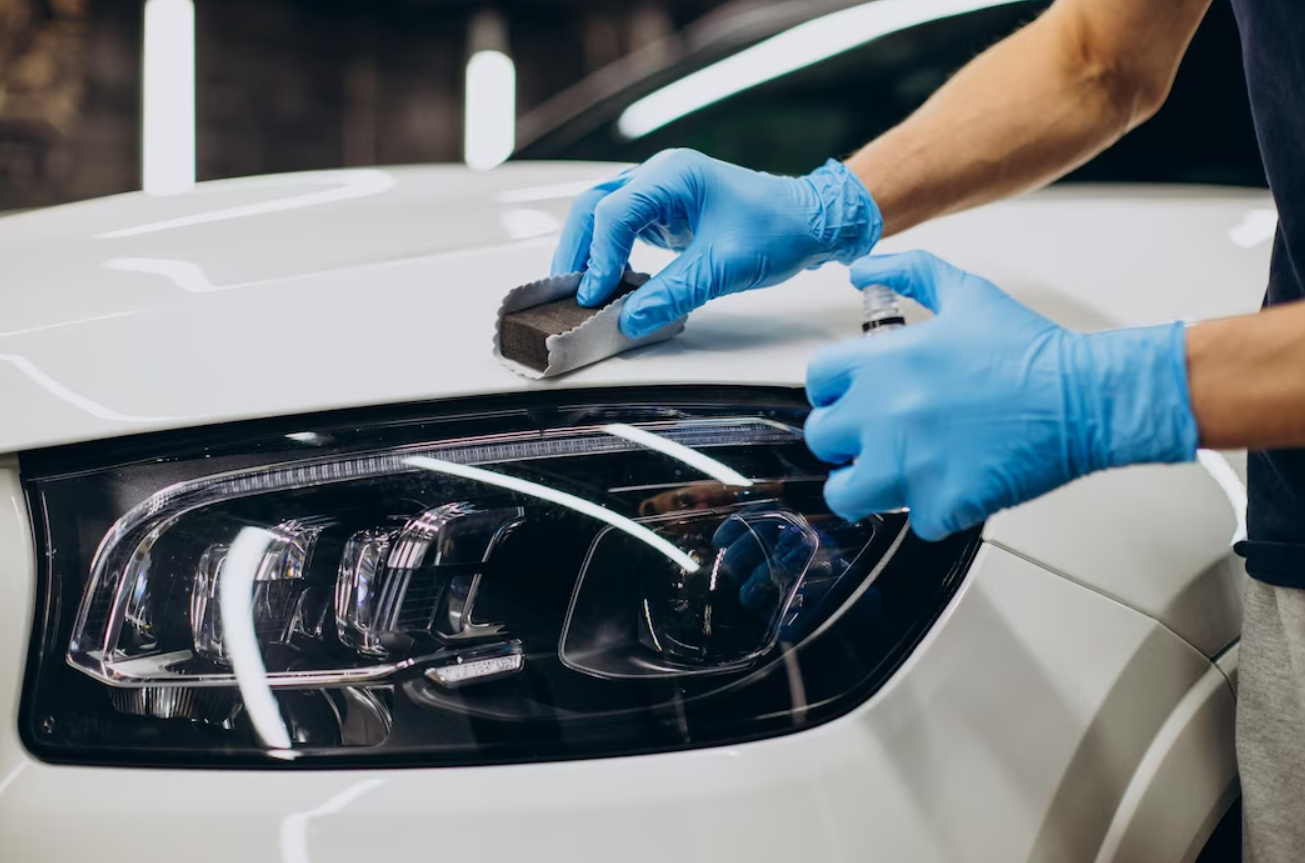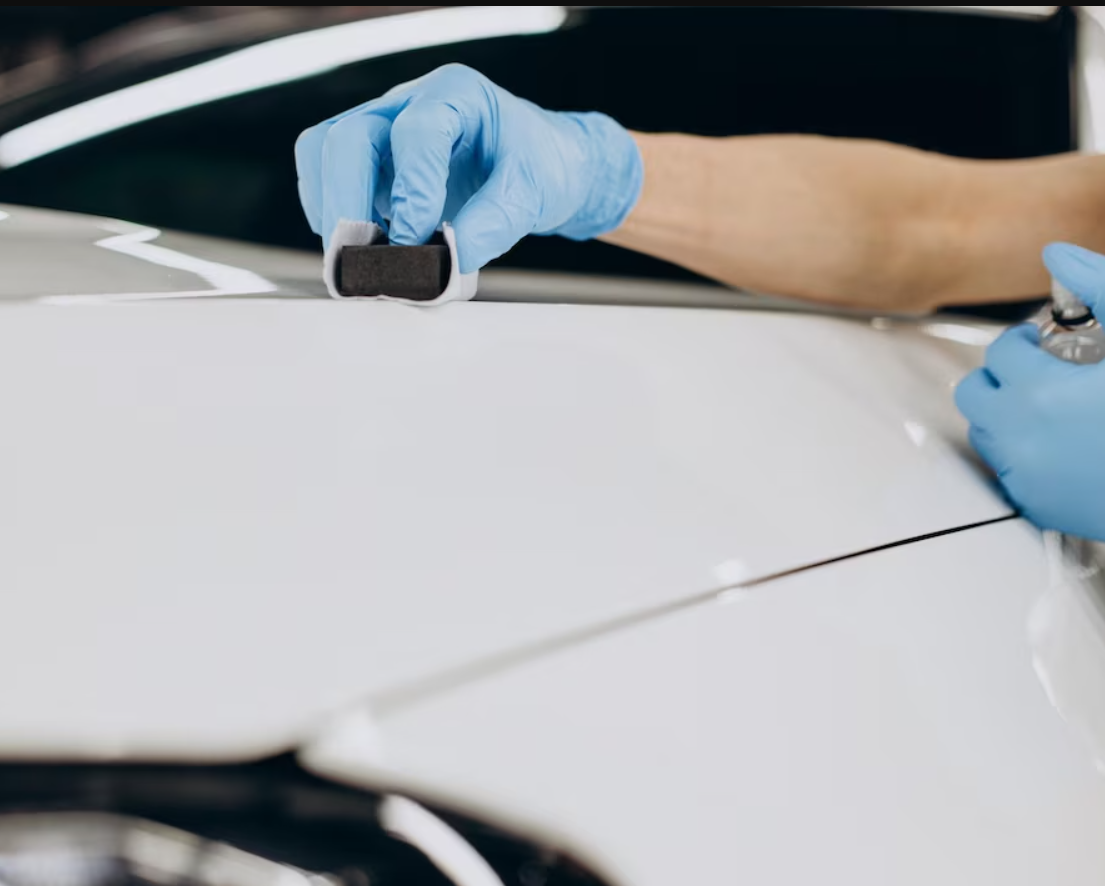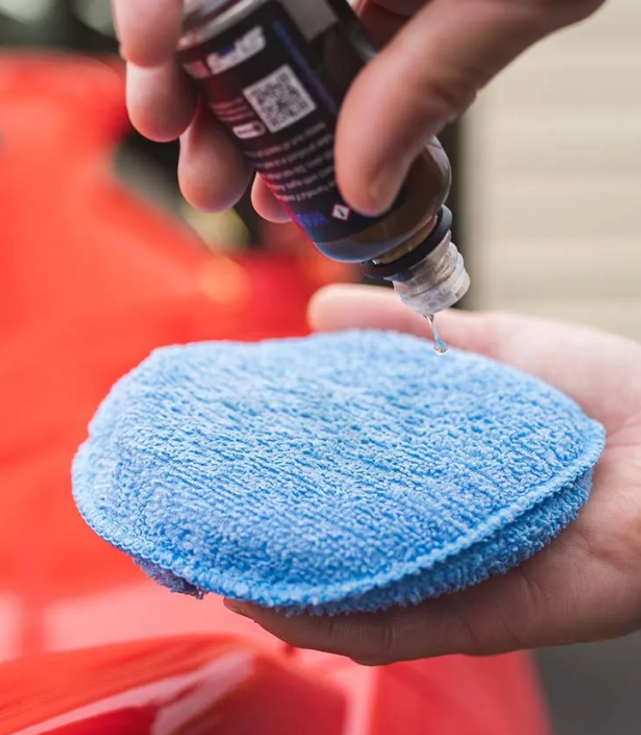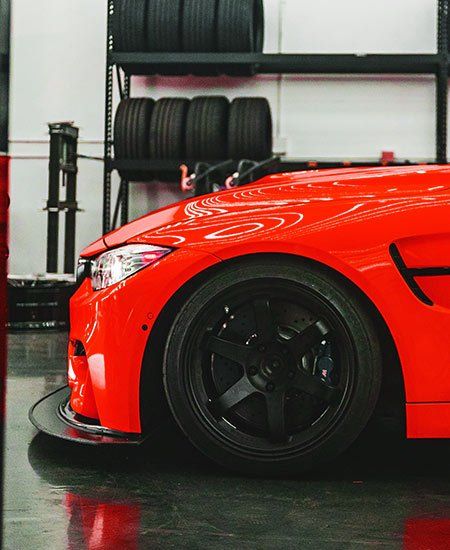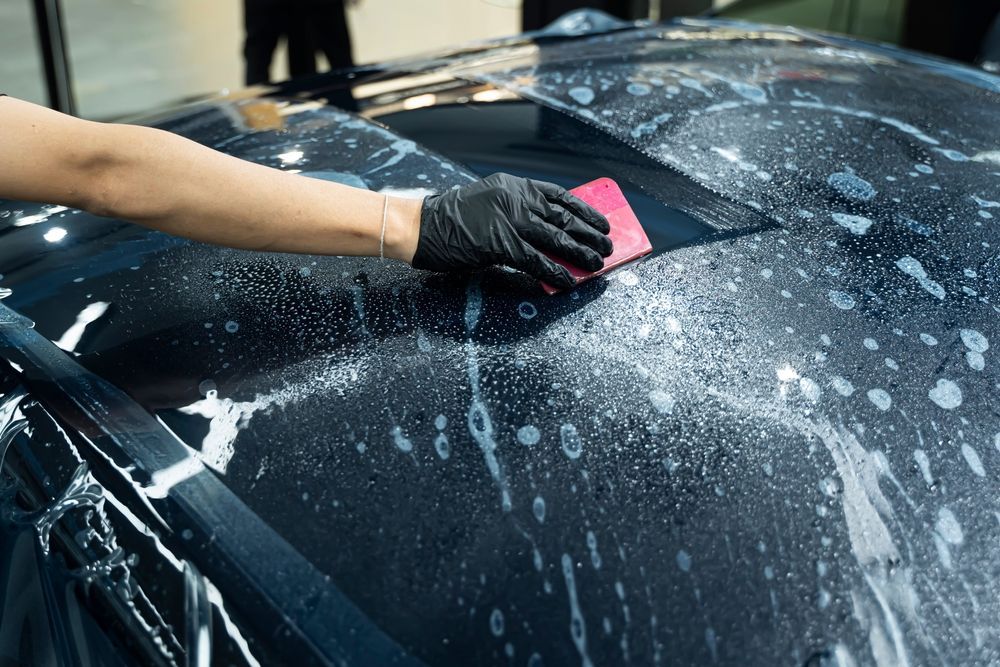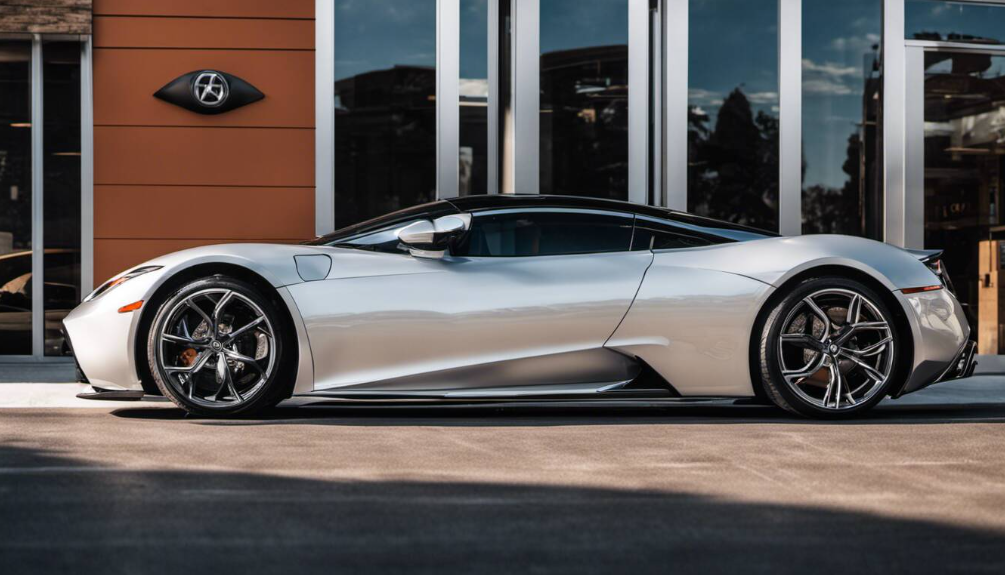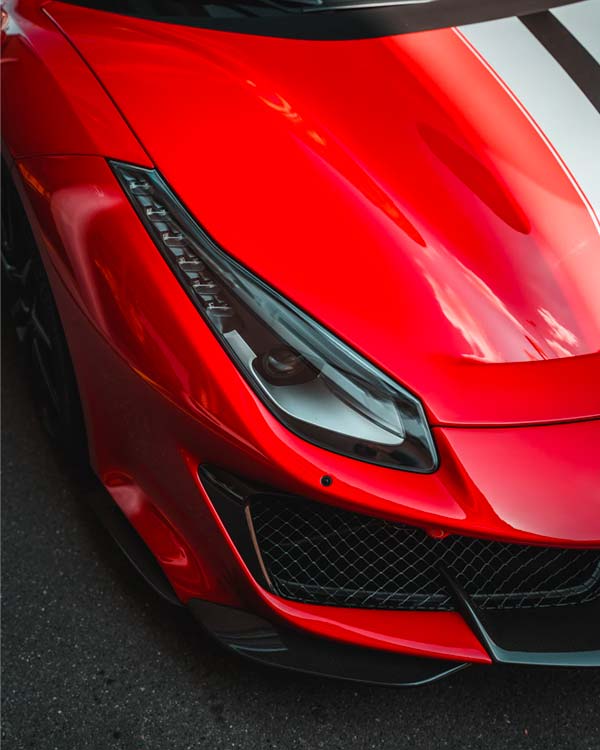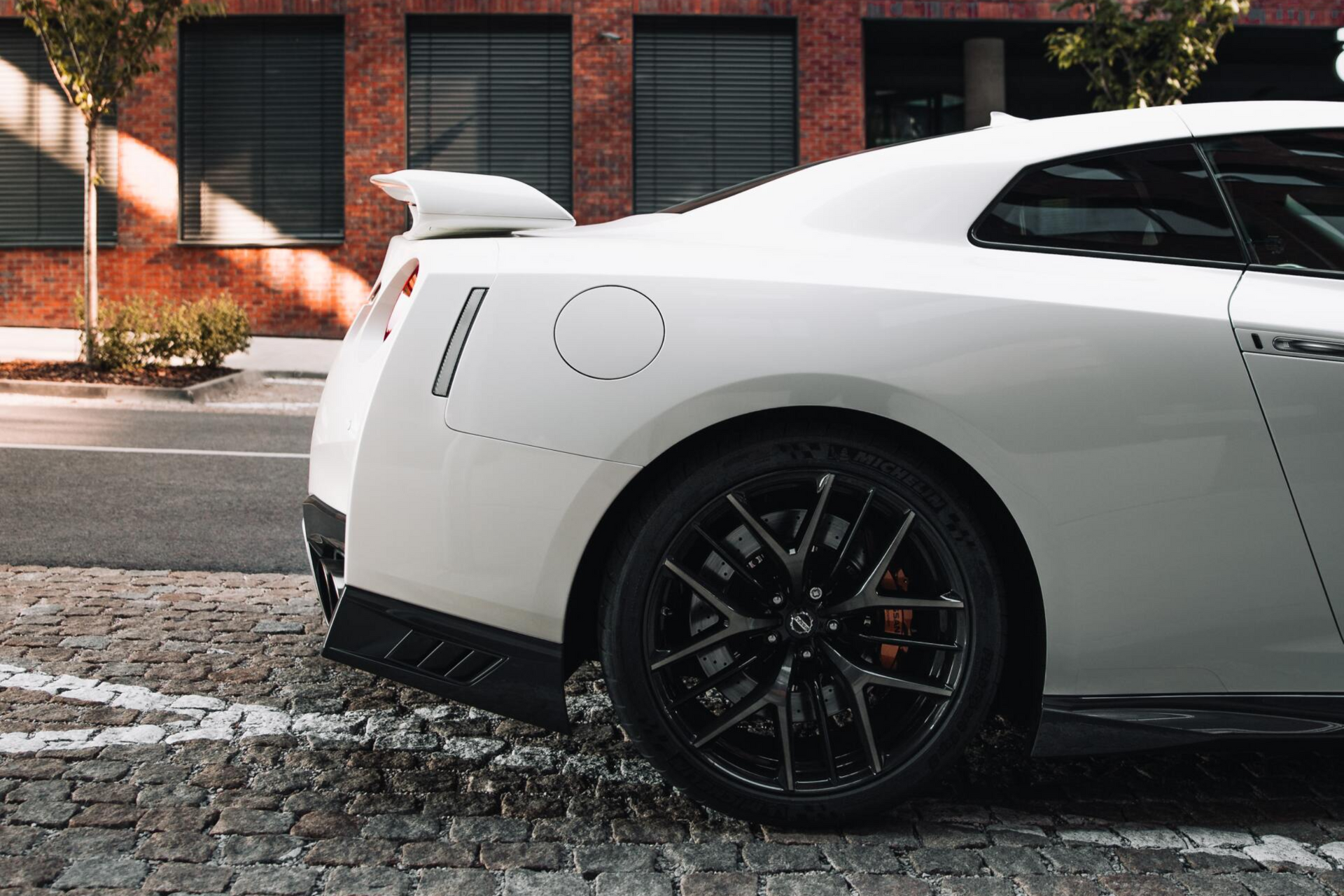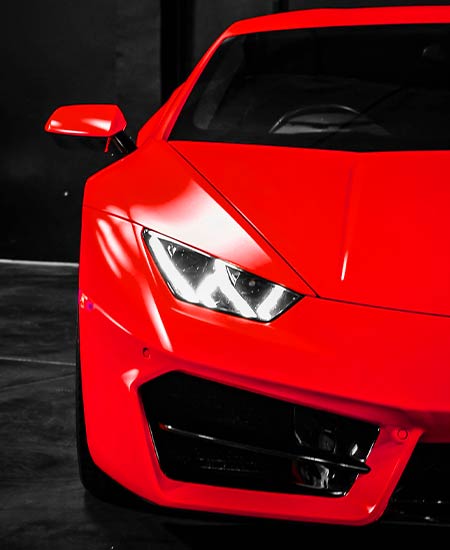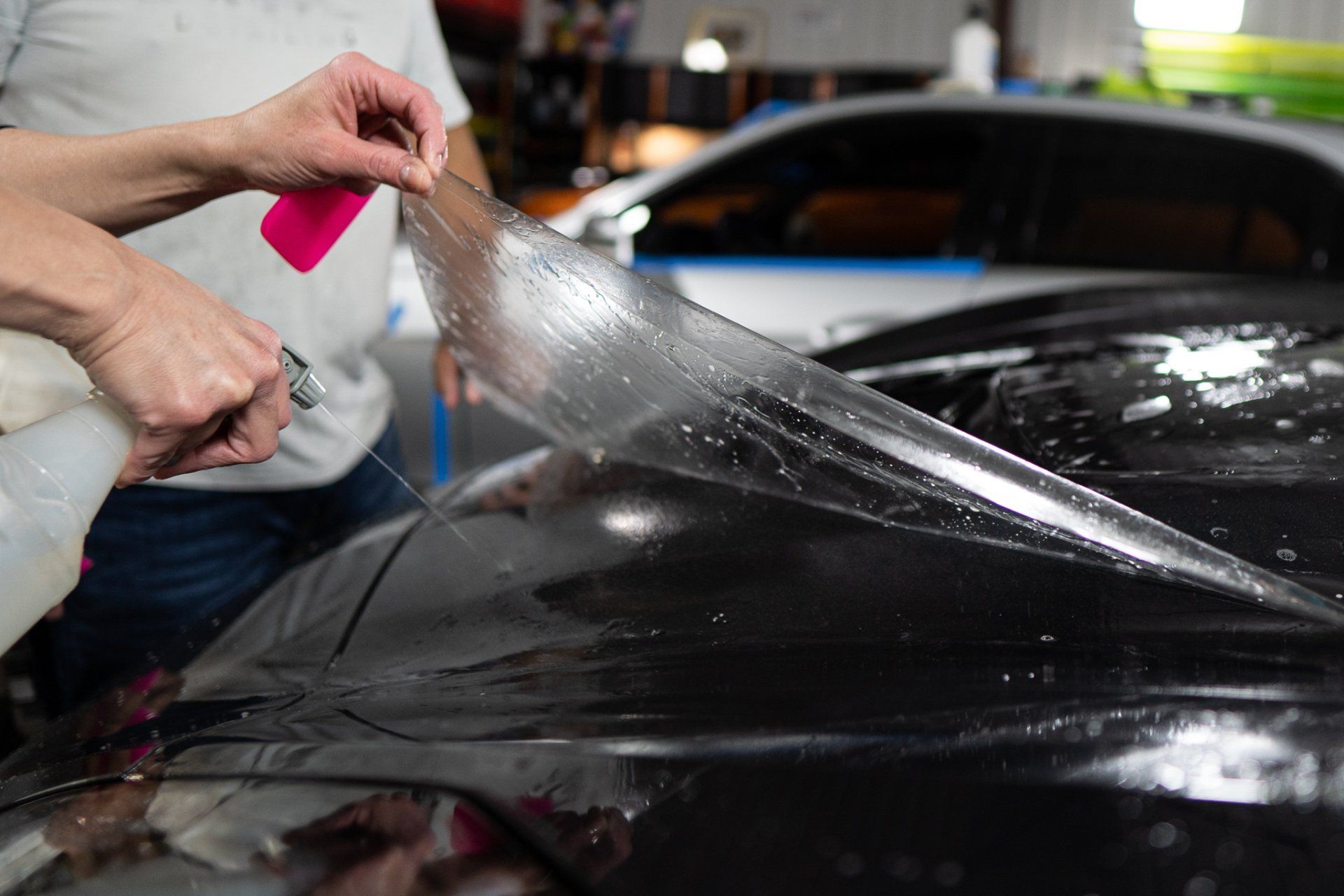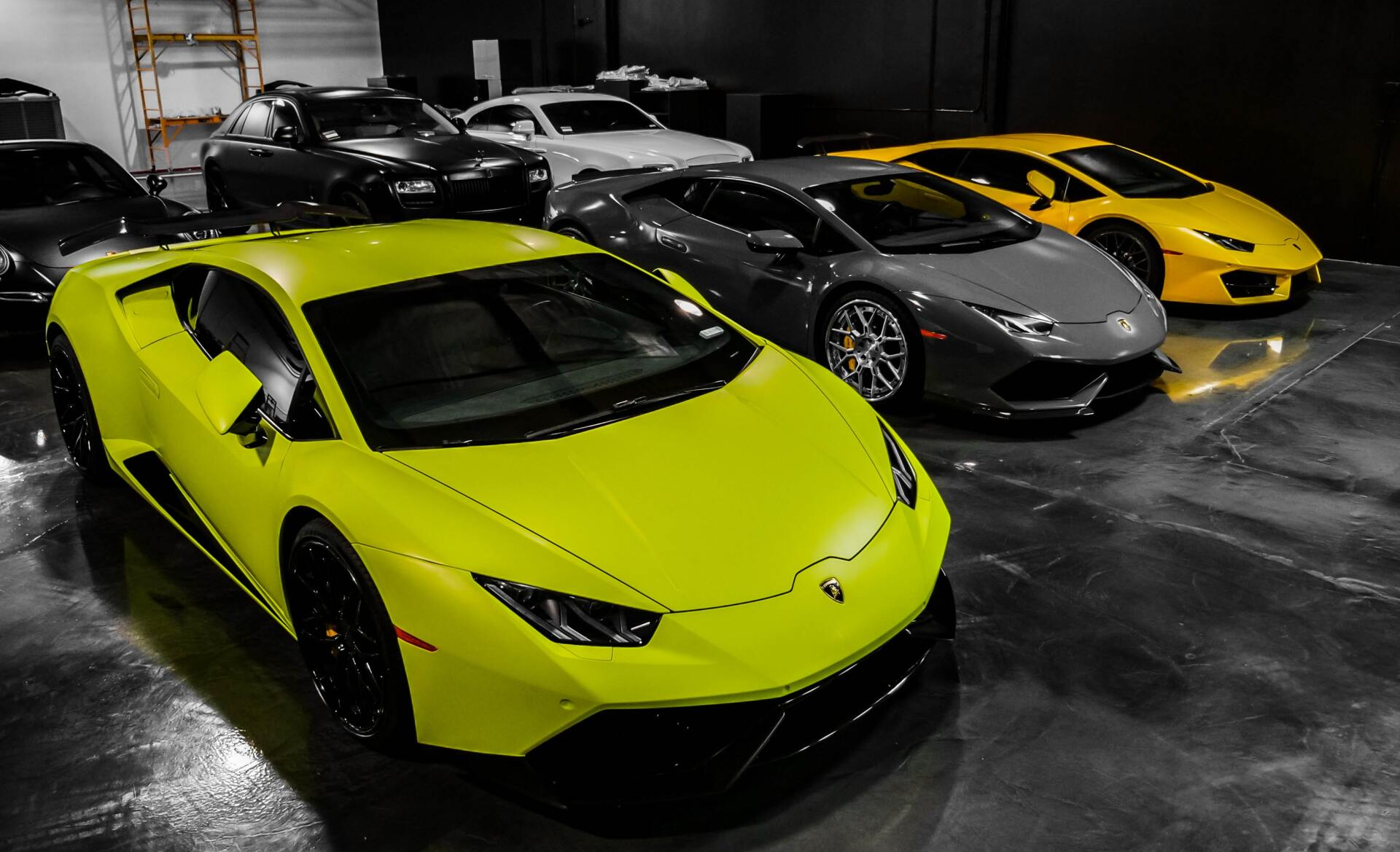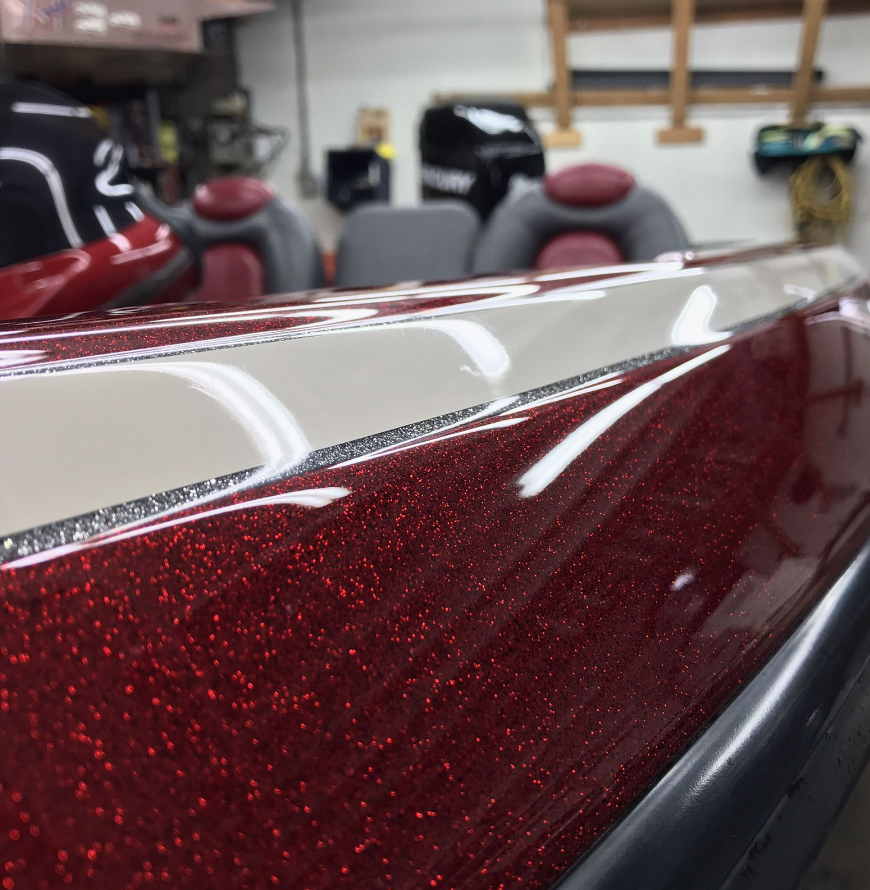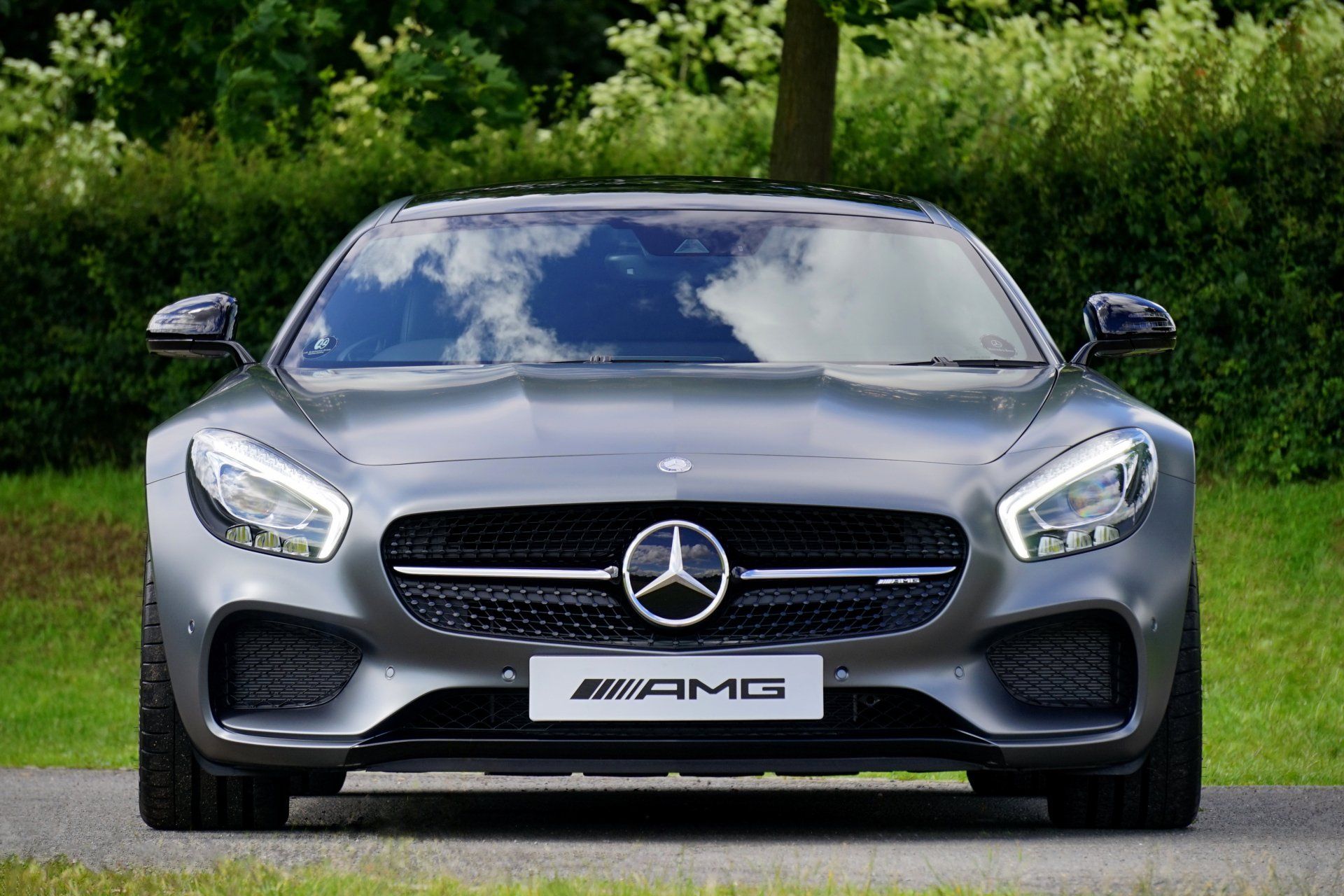The Benefits of Ceramic Coating: Protecting Car Paint from Sun Damage
Ceramic coating is like a suntan lotion for your car, shielding against the sun's harmful UV rays. It acts as a durable barrier that reduces paint oxidation and fading, keeping your beloved vehicle's shine intact. Surprisingly, these coatings also serve a hydrophobic role, repelling water and contaminants. This means fewer trips to the car wash, making your life easier. As for maintaining this protection, it's quite simple.
A ceramic coating creates a protective layer over the car's paint, shielding it from the sun's UV rays. This helps prevent oxidation, fading, and degradation of the paint and provides long-term protection for your vehicle's exterior.
Ceramic Coating: Guarding Your Car Against Sun Damage
The sun's UV rays can oxidize and fade car paint, as well as degrade the rubberized trim, especially in sunny areas like Florida. Washing your car frequently, indoors or out of direct sunlight, helps to remove dirt and debris that can damage the paint. Drying your car thoroughly after washing is crucial to preventing mineral deposits from water on the freshly washed car. Keeping your car out of the sun is the best way to protect its paint. Parking under shady trees may seem like a good idea, but it can lead to bird droppings and tree sap, which can cause permanent damage. If available, using a garage or getting a vehicle cover are recommended options. Applying a ceramic coating offers greater UV protection than wax and forms a permanent bond with the vehicle's paint for lifelong protection. It protects against contaminants in water, improper washing and drying, and UV damage.
Ceramic coatings also help in maintaining the integrity of the rubberized trim and other exterior components. The sun's UV rays can oxidize and degrade these parts, leading to cracks and deterioration. However, with a ceramic coating in place, these exterior components are shielded from the damaging effects of the sun, extending their lifespan and keeping them looking pristine for longer. Plus, it reduces the need for frequent maintenance. Parking in shaded areas or using a vehicle cover might seem effective, but they don't offer comprehensive protection. Shady trees may seem protective but they can lead to bird droppings and tree sap, causing permanent damage. Vehicle covers come with their own set of inconveniences and limitations. On the other hand, ceramic coatings provide a uniform and long-lasting shield without requiring constant reapplication or cumbersome use.
Investing in ceramic coating not only protects your current investment but also enhances its future potential worth by maintaining its external condition, significantly impacting its resale value. Ceramic coatings offer a high level of protection, but there is still more to learn about this cutting-edge method of car paint protection.
Ceramic Coating vs. Other Car Paint Protection Methods
When it comes to protecting your car's paint, you have various options at your disposal, each with its own set of pros and cons. It's crucial to understand the differences between ceramic coatings, traditional sealants, and waxes before determining the best method for your vehicle.
- Waxing: Wax has been a go-to solution for maintaining a car's shine and protection for generations. It's relatively easy to apply and provides a decent amount of protection, mainly against light dirt and other environmental contaminants. However, its longevity is not as impressive as that of ceramic coatings. A good wax application may only last around 1-3 months, after which it will require reapplication.
- Sealants: On the other hand, sealants are designed to offer longer-lasting protection than wax. They typically last around 6–12 months before needing to be reapplied. Sealants also provide protection against UV rays and are more resistant to chemical agents and environmental contaminants. However, like wax, these products don't hold a candle to ceramic coatings when it comes to durability and overall performance.
- Ceramic Coatings: Unlike sealants and waxes, ceramic coatings offer longevity that far exceeds that of their counterparts. The average durability ranges from 2 to 5 years or longer, providing long-term protection for your car's paint against UV rays and environmental contaminants. This makes it an attractive option if you're looking for a more permanent solution that doesn't require frequent reapplication.
Ceramic coatings also offer significant advantages over traditional sealants and waxes in terms of glossiness, cooler surface temperature, and ease of cleaning. The increased gloss effect that the ceramic coating provides improves the vehicle's aesthetic appeal and can make the color appear more vibrant. Additionally, due to their durable hydrophobic properties, ceramic coatings facilitate easier cleaning by repelling water and preventing contaminants from adhering to the paint surface. This results in reduced maintenance efforts compared to sealants and waxes, where washing and drying need to be performed more frequently to maintain the protective layer. In summary, while each method of car paint protection has its benefits, ceramic coatings stand out as a long-term solution offering unmatched durability, glossiness, and ease of maintenance compared to traditional sealants and waxes.
Step-by-Step Application of Ceramic Coating
Your car's paint has to be as clean and smooth as glass for the ceramic coating to work properly. Here are the crucial steps involved in applying a ceramic coating to ensure your car's paint is well-protected:
- Surface Preparation: Before applying the ceramic coating, the car's paint must be thoroughly cleaned, decontaminated, and polished to guarantee a smooth surface free of swirl marks, scratches, or other impurities that could affect the bonding process. Surface preparation is critical. Contaminants like dirt, road grime, and residue from previous waxes or sealants can interfere with the ceramic coating's ability to form a strong bond with the paint. To properly prepare the surface, thorough washing, claying, and polishing are essential. This removes any bonded contaminants and restores the paint's smoothness and clarity.
- Application Process: Once the surface is prepped, it's time to apply the ceramic coating. Working in small sections at a time helps ensure even coverage and prevents the coating from drying too quickly. Using applicator pads or microfiber cloths, apply the ceramic coating meticulously, taking care not to miss spots or leave streaks. The goal here is to achieve a uniform layer of coating on every inch of the paint. Sometimes less is more; using too much product won't provide added benefits but may create uneven layer thickness, leading to complications during removal.
- Curing Period: After application, the ceramic coating needs time to cure. Usually, this curing period ranges from 24 to 48 hours, during which the car should be kept away from water or moisture to allow the coating to form a strong, durable bond with the paint. Curing time is crucial for the longevity of the ceramic coating. A proper curing duration allows the ingredients in the coating to crosslink with each other and with the paint, forming a durable protective layer. During this period, avoiding exposure to water or moisture is vital, as these can disrupt the bonding process and compromise the effectiveness of the coating.
Successfully applying a ceramic coating requires careful attention to detail and adherence to specific processes at each stage. By following these steps diligently, you can ensure that your car receives maximum protection and maintains its sleek appearance for an extended period of time. It is best recommended to have a professional ceramic coating installed on your vehicle.
Budgeting for Ceramic Coating: Initial Costs and Upkeep
The initial cost of getting a ceramic coating for your car includes not just the product itself but also the paint correction process before application. This paint correction is crucial because it ensures any existing imperfections in the paint are addressed before the ceramic coating is applied. While consumer-grade ceramic coatings can start at around $50, it's important to note that a significant portion of the expense comes from the paint prep and correction work rather than the ceramic coating itself.
When weighing whether a ceramic coating is worth the investment, keep in mind that these coatings typically offer more durability compared to traditional wax or sealant. This means that while the initial cost might be higher than other products, you can potentially save money in the long run by not having to reapply wax or sealant as frequently. By understanding these upfront costs and long-term benefits, you can make an informed decision about whether ceramic coating is right for you and your vehicle.
Ensuring Ceramic Coating Longevity: Maintenance Tips
You've made the investment in a ceramic coating to protect your car's paint and keep it looking pristine for the long term. To ensure its longevity, proper maintenance is crucial. The right care can significantly preserve the protective properties of the ceramic coating.
When it comes to maintaining a ceramic coating, regular washing with the appropriate products is essential. Using pH-neutral car wash soap helps prevent damaging the coating. Acidic or alkaline soaps can compromise the ceramic coating's integrity over time, leading to premature deterioration. These harsh chemicals can break down the protective layer, rendering it less effective in shielding your car's paint from environmental factors. In addition to using the right cleaning products, employing proper washing techniques is equally important. Avoid abrasive materials such as rough sponges or brushes that may cause micro-scratches on the coated surface. Opt for gentle washing tools and techniques to maintain the coating's smooth finish and protective qualities.
Thorough drying after each wash is also crucial. Water spots and mineral deposits left behind on the freshly washed car can negatively impact the appearance of the ceramic coating. By ensuring complete drying, you prevent these substances from marring the glossy finish and compromising the hydrophobic properties of the coating. Consider drying your car using a microfiber drying towel to ensure a spot-free finish without causing any damage to the ceramic coating. Moving on from washing tips, it's imperative to avoid automatic car washes that utilize harsh chemicals or stiff brushes since they can damage the ceramic coating. Instead, opt for hand washing or touchless car washes that employ gentle cleaning methods.
Protecting your car from prolonged exposure to direct sunlight is essential to maintaining the integrity of the ceramic coating. Prolonged UV exposure can diminish the protective properties of the coating over time, leading to premature degradation. Lastly, periodic inspection for any signs of wear or damage is crucial. Identifying any areas where the ceramic coating may have deteriorated allows for timely maintenance and touch-ups to uphold its protective properties. By following these maintenance tips meticulously, you can extend the longevity of your ceramic coating and ensure that your car's paint stays well-protected and vibrant for years to come.
Trusted Ceramic Coating Service Provider in Dayton, OH
Experience automotive excellence with Vehicle Enhancement Inc., your trusted ceramic coating service provider in Dayton, OH. Our commitment to delivering unparalleled protection and a showroom-worthy finish sets us apart as the go-to choice for discerning car enthusiasts. At Vehicle Enhancement Inc., we employ cutting-edge ceramic coating technology to shield your vehicle from the elements, UV rays, and everyday wear, ensuring a lasting, glossy appearance. Our skilled technicians are dedicated to precision and attention to detail, transforming your car into a masterpiece. Schedule your appointment or call us at (937) 361-7993!

